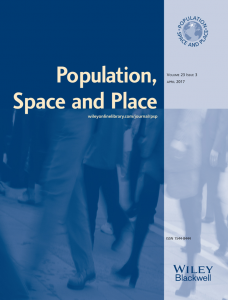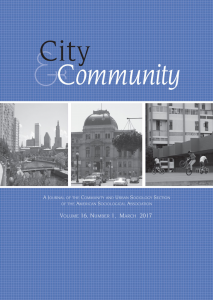Identity Theory, Emotions, and the “Victim”—“Survivor” Binary
by Jenny Enos, Doctoral Student - Sociology, Rutgers University · Published · Updated
 Sociological identity theory concerns itself with the concept of the self: what it is, how societal structures influence it, and how we navigate it. According to the symbolic interactionist tradition, heavily influenced by the work of George Herbert Mead, one’s sense of self or identity is built in and through social interactions with others. As such, there is a reciprocal relationship between the self and the external social world; society impacts the self, and in turn, the self impacts our social interactions. There is no single identity to which we ascribe, but rather, our selves are composed of multiple identities that are organized according to salience[1]. According to Stryker[2], identity is shaped by interactions that are conditioned by structural aspects such as gender, race, and class, in addition to more local-level structures that directly shape our social networks.
Sociological identity theory concerns itself with the concept of the self: what it is, how societal structures influence it, and how we navigate it. According to the symbolic interactionist tradition, heavily influenced by the work of George Herbert Mead, one’s sense of self or identity is built in and through social interactions with others. As such, there is a reciprocal relationship between the self and the external social world; society impacts the self, and in turn, the self impacts our social interactions. There is no single identity to which we ascribe, but rather, our selves are composed of multiple identities that are organized according to salience[1]. According to Stryker[2], identity is shaped by interactions that are conditioned by structural aspects such as gender, race, and class, in addition to more local-level structures that directly shape our social networks.
Specifically, identity theory suggests that our multiple identities are organized into a hierarchy based on salience – the “likelihood that an identity will be invoked in a variety of situations”[3]. Based on this situational salience, we adopt different social roles, such as “parent” or “employee” with varying levels of commitment. For example, while one may feel great commitment to one’s role as a parent, one might be less committed to the role of employee.
Theorists of social identity have also examined how emotions may play a part in identity commitment and salience. Anecdotally, most individuals can point to certain events or experiences – both positive and negative – that have shaped their understandings of themselves; therefore, scholars have interrogated how emotional responses to events may inform the commitment and salience of certain identities. In turn, these identities may affect our emotions. In this vein, Boyle and Rogers’[4] article entitled “Beyond the Rape ‘Victim’-‘Survivor’ Binary: How Race, Gender, and Identity Processes Interact to Shape Distress” examines how identifying as a “victim” or “survivor” of sexual assault relates to individual feelings of distress. In a survey of college students, the authors find that while most respondents identify as both “victims” and “survivors” of sexual assault, those who identify solely as “victims” report greater negative emotions than those who identify solely as “survivors”. Importantly, these findings vary based on race and gender categories, whereby identifying as a “victim” is found to have stronger negative associations with men’s emotional states than women’s and identifying as a “survivor” particularly mitigates emotional distress among women of color.
Sexual violence, and how individuals experience it, is undoubtedly gendered as well as racialized. The history of sexualizing women of color as “unrapeable” in the U.S. makes White women more likely to be considered to be “victims” of sexual assault than women of color in public discourse. Additionally, Black women in particular have to navigate stereotypes about “strong Black women” in their identification as either “victims” or “survivors” of sexual assault. In line with these considerations, Boyle and Rogers find that the negative effects of identifying as a “victim” was stronger for women of color than for White women, and those women of color who identified as “survivors” experienced more positive emotions than their White counterparts.
This study echoes lively debates in feminist and social movement circles about victimization and the proper terminology to use to describe those who have been sexually assaulted. The various culturally embedded meanings in the word “victim” make the debate especially controversial. As one Time Magazine contributor writes of her own experience with grappling with the victim-survivor binary: “pick up a thesaurus, or type ‘victim’ into an online one, and you begin to get the picture: butt, clown, dupe, fool, gopher, gudgeon, gull, mark, patsy, pawn, pigeon, prey, pushover, stooge, sucker. These are the words that begin rewriting your story as soon as you utter the word victim”[5]. What’s more, anti-feminist skeptics may argue that calling oneself a “victim” is self-indulgent because of our culture’s supposed coddling of victims and the power that victims are granted to “pull emotional rank over non-victims when discussing contentious cultural issues”[6]. Considering this multi-layered stigma associated with identifying as a “victim,” it is not difficult to see why Boyle and Rogers’ study found that such an identity is related with negative emotional outcomes.
Undoubtedly, the finding that individuals’ emotional states can be influenced by whether they identify as “victims” or “survivors” of sexual assault raises many important questions about traumatic events, identities, and emotion. Given the particular stigmatization around sexual assault in our culture, one may ask how Boyle and Rogers’ findings translate to other experience-based identities. For example, do we see the same relationship between emotional outcomes and identifying as a victim of other types of violent crime? The causal direction of these findings is also interesting to consider. There appears to be a mutually reinforcing cycle of stigmatization-identity-emotion at play here, whereby sexual assault stigmatization influences identity formation, which in turn influences emotional outcomes, which then reinforces the stigmatization. Does this suggest feminist social movements should push even harder to move away from the “victim” discourse to the “survivor” discourse? Or would continued efforts to influence how individuals identify instead reinforce the stigmatization and confusion individuals who have experienced sexual assault may feel? As Harding[7] writes, it might be worth considering: “What’s wrong with being a victim?”
[1] Stryker, Sheldon. 2004. “Integrating Emotion into Identity Theory.” Theory and Research on Human Emotions: Advances in Group Processes 21: 1-23.
[2] Stryker, Sheldon. 2008. “From Meade to a Structural Symbolic Interactionism and Beyond.” Annual Review of Sociology 34: 14-31.
[3] Ibid. Page 20.
[4] Boyle, Kaitlin M. and Kimberly B. Rogers. 2020. “Beyond the Rape ‘Victim’-‘Survivor’ Binary: How Race, Gender, and Identity Processes Interact to Shape Distress.” Sociological Forum. Published Online Feb 18 2020.
[5] Harding, Kate. 2020. “I’ve Been Told I’m a Survivor, Not a Victim. But What’s Wrong With Being a Victim?” Time Magazine. Feb 27 2020.
[6] Ibid.
[7] Ibid.




1099-0860/asset/NCB_logo.gif?v=1&s=40edfd0d901b2daf894ae7a3b2371eabd628edef)